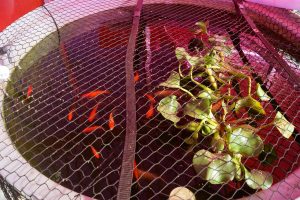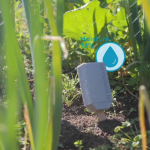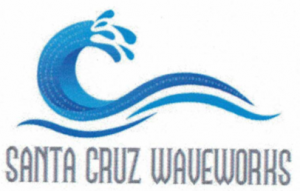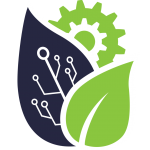Project Archives
S-Lab hosts student and faculty projects that align with the mission statement in research areas focused on urban agriculture, renewable energy and smart power systems, water security, and resource efficiency in the natural and built environment. Please refer to our project library for a list of ongoing and past projects.
Some of these projects are still open for new teams to take further, check out the list of opportunities here
Project Archive
Sustainable Food Systems
 Aquaponics are a type of self-sustaining food production system; in this project, the students aim to create an aquaponics system that relies completely on off-grid power, produces large amounts of healthy organic food, and can be replicated affordably throughout the world. This project utilizes media beds equipped with drip irrigation in order to provide our plants directly with aquaponic produced nutrient solution. Based out of the UCSC Arboretum and S-Lab, this project is student led.
Aquaponics are a type of self-sustaining food production system; in this project, the students aim to create an aquaponics system that relies completely on off-grid power, produces large amounts of healthy organic food, and can be replicated affordably throughout the world. This project utilizes media beds equipped with drip irrigation in order to provide our plants directly with aquaponic produced nutrient solution. Based out of the UCSC Arboretum and S-Lab, this project is student led.
 SproutLabs is designing software and hardware for data driven plant care and agriculture. Our hardware and software is feedback driven solution that combined allows you make informed decisions about irrigation rather than guessing, resulting in significantly reduced water use for landscaping and agriculture. Our long term goal is to help eliminate water waste in landscaping and large scale agriculture through data driven irrigation using our sensors and autonomous watering systems.
SproutLabs is designing software and hardware for data driven plant care and agriculture. Our hardware and software is feedback driven solution that combined allows you make informed decisions about irrigation rather than guessing, resulting in significantly reduced water use for landscaping and agriculture. Our long term goal is to help eliminate water waste in landscaping and large scale agriculture through data driven irrigation using our sensors and autonomous watering systems.
Sustainable Power Systems
Electrification in Rural Areas
Electrification in Vanuatu: S-lab and CITRIS have partnered with the United Nations Development Programme to help perform objective feasibility studies for electrification of developing communities in the global south. Students and faculty mentors will work together to recommend appropriate technology for microgrids and grid extensions, taking into account actual sustainability indicators, suppressed demand, and potential income generating activities specific to the communities for holistic and sustainable development.
S-lab teams are currently updating the microgrid facility in the Arboretum for use as a test-bed when analyzing potential electrification solutions. In the future, we hope to explore both on and off-grid solutions, including: demand-response, thermal and chemical storage, mixed AC/DC grids, and smart power monitoring systems.
Environmental Stewardship and Social Justice
Carbon Dioxide Uptake and Library (Join)
Understanding how changes in our adoption of new technology and land management practices impact both our carbon emissions and environmental health are critical issues for building sustainable infrastructure in the 21st century. Net carbon emissions are determined by deforestation and burning fossil fuels on the one hand, balanced by carbon uptake by oceans and land resources on the other. However, the relative impact of agriculture, forests and desert plant species is still being debated, as standardized and accessible information infrastructure is lacking. This project aims to design and develop an affordable remote sensing system for in situ measurement of the carbon uptake by individual plant species. Once the system is tested and optimized for simplicity, it will be distributed with an accompanying learning module to communities in diverse locales, with the goal of building a comprehensive database of plant species’ carbon uptake and its dependence on variations in environment.
Pico-Solar Scorecard (Join)
As energy generation in the global south shift toward more renewable and sustainable sources, little attention is given to these products' end of life. Pico-solar products, such as <10W solar lanterns, are increasing in popularity - more than 20 million have been sold in Africa and Asia from 2007 to 1015. Unfortunately, these products are not easily repaired nor are their components easily separable or recoverable, meaning the whole system is either simply tosses aside as litter or in many cases burned. UCSC is partnering with the University of Edinburgh and international NGOs to develop and implement a scorecard and grade pico-solar products holistically, assessing potential environmental, social, and geopolitical risk at every stage of the products' life cycle.
 Surfing without knowledge of sub microclimates can be dangerous especially since conditions in the water can change dramatically in short periods of time. People have perished for lack of knowledge of changing surf. Most data is accumulated using offshore NOAA open source buoy data and staffed meteorologist to deliver predictive information to customers regarding surfing conditions. This information is only update a few times daily, and thus is not reflective of real time conditions. The technology to detect rapidly changing conditions enables a safer more enjoyable way of learning to surf. Santa Cruz WaveWorks (SCWW) is an innovative low cost, high resolution system capable of reporting and distributing oceanic swell and associated data in real time. This technology provides proprietary content to subscribers interested in sub-micro climate real-time surf conditions.
Surfing without knowledge of sub microclimates can be dangerous especially since conditions in the water can change dramatically in short periods of time. People have perished for lack of knowledge of changing surf. Most data is accumulated using offshore NOAA open source buoy data and staffed meteorologist to deliver predictive information to customers regarding surfing conditions. This information is only update a few times daily, and thus is not reflective of real time conditions. The technology to detect rapidly changing conditions enables a safer more enjoyable way of learning to surf. Santa Cruz WaveWorks (SCWW) is an innovative low cost, high resolution system capable of reporting and distributing oceanic swell and associated data in real time. This technology provides proprietary content to subscribers interested in sub-micro climate real-time surf conditions.

